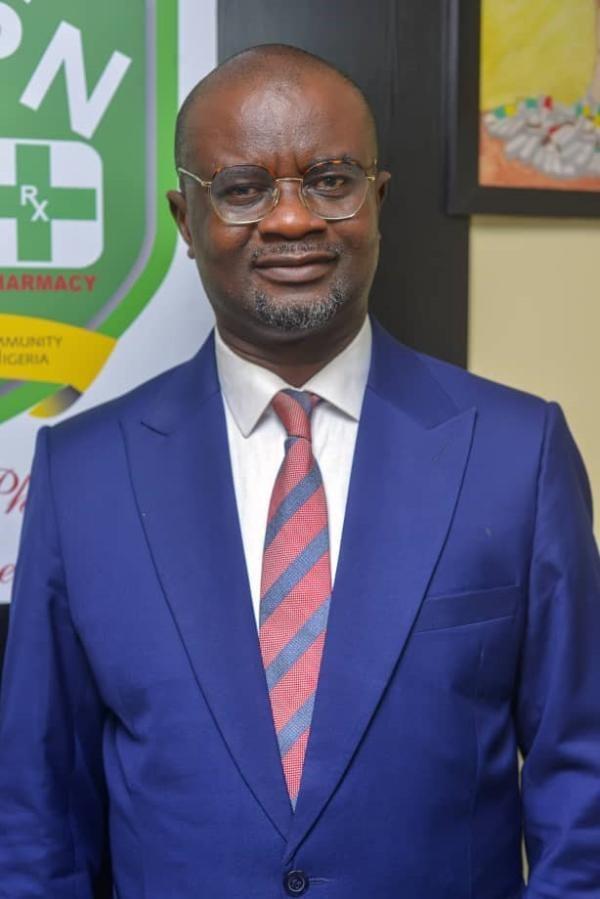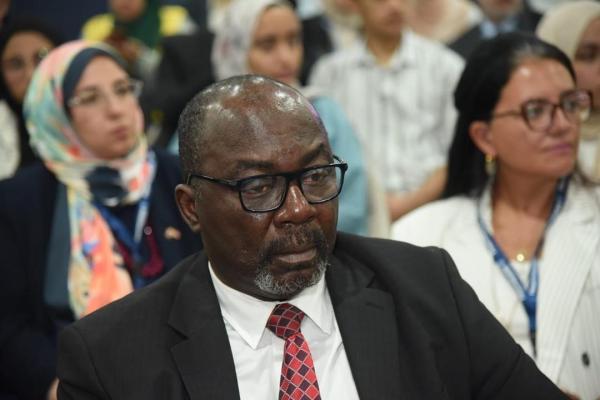
The Jewel City of Gombe State, played host to who is who in the pharmaceutical industry, Community Pharmacists, Clinical, academic and other pharmaceutical professionals with stakeholders from all walks of life gathered at the historic Gombe International Conference Centre, Bauchi Road, Gombe State for the 96th Annual National Conference of the Pharmaceutical Society of Nigeria (PSN).
The 5-day conference was held from 30th October to 4th November, 2023, with a theme; “Pharmaceutical Practice: A Pivot to Universal Health Coverage in Nigeria
The President, Pharmaceutical Society of Nigeria, Pharmacist Professor Cyril Odianose Usifoh FPSN,
structured his welcome address along the lines of three major contemporary issues affecting the health system.
Read Full Address Below:
It is my honour and privilege to welcome you to our landmark 96th Annual National Conference tagged Jewel City 2023., I will structure this address along the lines of three major contemporary issues to make it insightful.
· The impending doom and collapse of regulated drug supply chain.
· Drug revolving fund need for sustainable redress.
· Infusing renewed energy into pharmacy education for an impactful future.
· The Impending Doom and Collapse of Regulated Drug Supply Chain:
It is a good thing to entrust the regulation and control of professions to the appropriate professional bodies as it ultimately places the destiny of these professions in the hands of those who practice them. For PCN, the mandate transcends regulating Pharmacists and other workforce cadres to the regulation and control of pharmaceutical premises in both the public and private sectors, including facilities for manufacture, importation, export, distribution, wholesale, retail, hospital drug dispensing and sales, pharma component of veterinary practice and much more.
The sensitivity of these endeavours listed, which are legally considered as Drug matters, is the fundamental reason most nations of the world find it imperative to bring drug use matters under central or federal control. Nigeria is not an exception to this norm, and this is why Drug Matters are listed as item 21 in Part 1 of 2nd Schedule in the 1999 constitution.
It is under control of the FG to ensure adequate protection of lives in terms of ensuring easy access to safe, efficacious, and affordable drugs to consumers of health in our country. It will be a thing of joy to see our beloved society take charge of these endeavours but the capacity and competence to deliver this is not available today without emotional paroxysms. Even in the status quo of FG involvement, poor funding has compelled us to live with over two million unregistered pharmaceutical premises, over 35 open drug markets, dispensing physicians in private hospitals, a thriving drug abuse and misuse culture which is seriously consuming our people especially youths and even women.
As far back as 1988 the poorly regulated drug distribution channels according to WHO studies generated an alarming 33% fake drugs from open drug markets and PPMVL holders leading to a fatality rate of 7%. A review exercise in 1998 put the incidence of fake drugs in our distribution channels at 49.6% with a therapeutic failure of 10.8% and 12.8% mortality rate in Nigeria. Despite modest output from the PCN, NAFDAC and NDLEA some 25 years after the incidence of fake drugs with attendant morbidity and mortality rate, it's still very substantial with different studies of national and international levels, variously postulating that it is between 16% and 48% in the last 25 years. The federal government probably conscious of the sensitivity of drugs matters as placed on the exclusive list did not dissolve the governing council of NAFDAC and the NDLEA but was not guided in the dissolution of the governing council of the Pharmacy Council (PCN) which speaks, regulates, controls and issue certificates to practice all retail, wholesale distribution, importation, manufacture of drugs and vaccines, veterinary products dressings, and consumables in Nigeria. You cannot possibly have a consuming evil of such monstrosity I am portraying, and you walk away as Government because some financial technocrats think they want to save money. It amounts to a comprehensive abdication of responsibility by an otherwise responsible government to contemplate this with PCN, which is both a peculiar and unique professional regulatory council. Finally, even from the purview of existing laws, the FG is compelled in Section 9[1] of the PCN Act 2022 to provide budgetary and extra budgetary allocation to the PCN. It will, therefore, be unlawful and illegal for the Budget Office to stop allocations to the PCN in public interest. I do hope the Chief Law Officer of the country guides the Tinubu administration on this crucial issue. The PCN in mandate, therefore, covers a market which is conservative put at some 2 billion dollars as at today.
· Drug Revolving Fund Need For Sustainable Redress:
One of the salient fallouts of the old essential drug decree 43 of 1989 now the essential drug act cap 252 LFN in 2004 is the creation of the drug revolving fund (DRF) scheme was designed to deal with the challenges of the perennial out of stock syndrome or drugs in public health institutions. DRF manual was designed to achieve a successful scheme.
DRF scheme was working very well from its inception until the different hospital management began to mutilate the original configuration of the DRF manual. A fundamental provision of the DRF manual was a compelling need to designate a Pharmacist preferably the HOD pharmacy as the project manager and a compulsory signatory in the DRF scheme. Like the name of the scheme suggests any diversion of the proceeds of the DRF ultimately leads to financial decapitation and collapse of the scheme.
To buttress the fact that a well-run DRF tackles the menace of this out-of-stock syndrome in public pharmacy department, DRF scheme of the National Orthopedic Hospital Igbobi (NOHI) which was the flagship over a decade ago give birth to a pharmacy house worth over 300 million in 2014 without a collapse of the DRF program because the management of the hospital at the time gave to the much-needed cooperation.
The militating bane of collapse DRF schemes in the various FHIs at federal level and that states and LGA levels remains the unfortunate reality that the DRF proceeds were diverted to other endeavours apart from drugs contrary to the provisions in the DRF Manuals.
As it stands today the 56 FHIs owe the pharmaceutical industry a staggering 18 billion naira as of 2021 and now 30 billion naira in 2023 and this a major reason the companies are no longer interested in supplying debtors which unfortunately are the government hospitals.
In 2021, the PSN and JOHESU drew the attention of the Federal Ministry of Health to the problems of collapsing DRF schemes including the gargantuan distortion witnessed at NOH Igbobi, which was the national benchmark for the DRF.
We called for a probe of the NOHI affair as well as clamored for a special retreat to resuscitate DRF by bringing together the HOD, pharmacies and physicians/ CEOs of all the FHIs.
The federal Ministry of Health agreed to the request to probe the misnomers at NOH Igbobi while also accepting the concept of the retreat proposed by the PSN.
As frequently witnessed with government policy somersaults have ensured the PSN/JOHESU request were not adhered with by the immediate past leadership of the Federal Ministry of Health.
In the new order, the PSN demands with a huge sense of responsibility that the DRF retreats proposed in 2021 should still hold.
The PSN also solicits legislative action to back the implementation of sustainable DRF scheme as the minimum benchmark that compels availability of essential drugs in all public pharmacy departments
· Infusing Renewed Energy Into Pharmacy Education For An Impactful Future:
As far back as 1999, the PSN at its AGM in Enugu, approved the Doctor of Pharmacy, as the minimal registrable degree to practice pharmacy in Nigeria. After years of vicissitude, oscillations, and vacillations from 2008 to 2015 by the leadership of PSN, the stage was set for a former approval of the Doctor of Pharmacy curriculum by the National University Commission in late 2015.
It is a poor testimonial that many of our Universities have not commenced the implementation of the Doctor of Pharmacy program in Nigeria.
For our colleagues in the civil service, it makes a huge mess of the efforts PSN and its other strategic partners who have achieved enhanced entry levels, call duty and other allowances for holders of Doctor of Pharmacy as endorse in existing circulars.
The annual general meeting at this conference must empower the PCN to probably withhold accreditation to facilities of Faculties of Pharmacy that refused to commence the Doctor of Pharmacy program.
The PCN when reconstituted will go ahead to set a realistic timeline to insist on PharmD as the minimum registrable qualification to practice pharmacy in Nigeria.
We at PSN have continue to express our gratitude to HOSOF. The immediate past and present Permanent Secretary of the Federal Ministry of Health, who we are honoring today, for finally allowing the Consultant Cadre in Pharmacy become a reality in Nigeria.
We also salute the doggedness of our partners in JOHESU who made the consultant cadre a prominent feature of the five-point demand of the May/June 2023 nationwide industrial action to press for better welfare package for health workers in Nigeria.
Presently, the PSN has made requests for vacancies for the position of consultants in all FHI at the office of Head of service of the federation. We are grateful to put on record that the Federal Ministry of Health has activated our request, and it is receiving attention at the appropriate quarters. It will therefore be in order to create the necessary structure to facilitate cross mobility of our fellowship and Pharm.D programs through the West Africa College of Postgraduate Pharmacists on the universities.
The reward system and experiential knowledge would be enhanced in pharmacy if academics in our profession can enjoy consultant status where our consultants and indeed seasoned pharmacists are engaged to lecture in our faculties/colleges of pharmacy.
Our leadership will be unrelenting in this desire in the months ahead. We shall also make bolder moves to actualize the long overdue National Postgraduate College of Pharmacy to ensure that our pool of expertise improves greatly in the years ahead in our quest for robust practice.
Conclusion
Distinguished colleagues, I want to appreciate you for your most appreciated support in collective bid for a next level.
We thank the government of Gombe State especially HE and all our sponsors who continue to identify with us even in the harsh economic climate we operate in.
Let's encourage you not to despair because our nation and by extension our profession will get to the Promised Land despite the many challenges confronting us today.
Let me assure you once again that pharmacy shall be great by his power!
Thank you for listening.






















